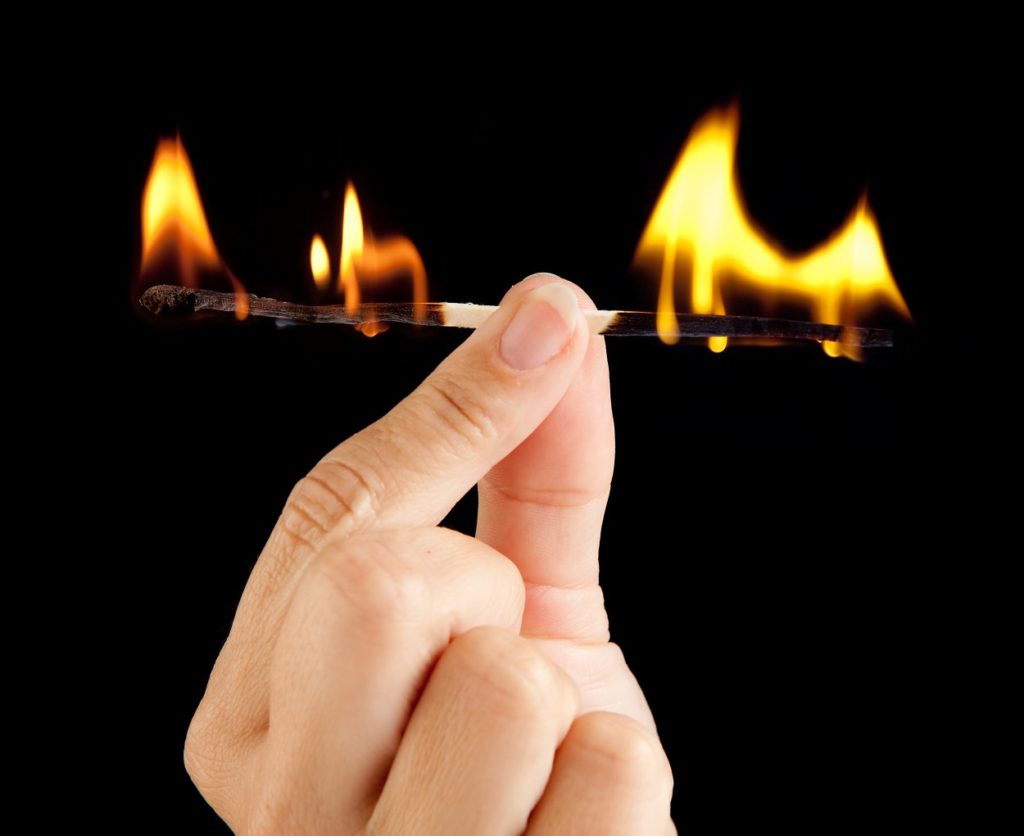Beware of Burnout – Tips for Prevention

Working a 50 – 60 hour week might seem like the norm, especially as moving ahead in the corporate environment is usually dependent on the number of hours invested in a week, but the toll it takes on our bodies is being seriously studied in light of the fact that many people in our generation are suffering from burnout. The effects of burnout on the brain can have cognitive implications resulting in signs of early aging and a correlation has also been found between burnout and heart disease.
Burnout can occur as a result of excessive and prolonged stress from work, relationships or even caring for a sick or elderly family member. It saps your energy and is described as a feeling of mental, physical and emotional exhaustion, helplessness and disillusionment. Most of us experience days when we feel that we cannot cope with the stress and the demands of everyday life – when life seems overbearing – but when this feeling continues over a long period of time and you have no motivation left to get out of bed and don’t seem to care about anything or anyone around you, then you may be suffering from burnout.
Your lifestyle and personality traits can affect your predisposition to burnout. Ongoing stress can wreak havoc on your body and mind and plays an integral role in the onset of burnout. When you are extremely stressed, you might feel overwhelmed by certain situations, but you are still able to imagine that you can get everything under control again. Symptoms of burnout however, usually begin gradually and are not as noticeable, but should be addressed in order to avoid a breakdown and the development of more serious illnesses.
| The difference between stress and burnout are as follows: | |
|
Stress
|
Burnout
|
| Characterized by overengagement | Characterized by disengagement |
| Emotions are overreactive | Emotions are blunted |
| Produces urgency and hyperactivity | Produces helplessness and hopelessness |
| Loss of energy | Loss of motivation, ideals, and hope |
| Leads to anxiety disorders | Leads to detachment and depression |
| Primary damage is physical | Primary damage is emotional |
| May kill you prematurely | May make life seem not worth living |
| Source: Stress and Burnout in Ministry | |
Although a person experiencing burnout suffers from lack of motivation and don’t see any hope in changing the situation, there are positive steps that can be taken in order to re-balance one’s life and recover from burnout.
It is all about balance:
If your job entails taking care of others, such as a social worker, nurse, doctor, teacher or even helping an elderly or sick family member, you are constantly in the state of giving. Coming home after a full day’s work and then taking care of your family can lead to burnout if you do not balance care-giving with self-care. During your work day, try and incorporate administrative duties to help reduce your stress and give you a break from constantly giving of yourself. At home, make sure you incorporate “me time” into your schedule whereby you take some time out to rejuvenate and restore your strength. This could either mean taking a bubble bath, relaxing with a cup of tea and a good book or simply chatting to a friend or spouse. Self-care is vital to your’s and your family’s well being.
Do you feel valued?
Developing good relationships with fellow employees and pursuing work satisfaction helps reduce stress. It also increases productivity and creates a sense of accomplishment. However, if you feel that your workload is excessive, your company does not value your work or you are being underpaid, it it time to rethink your working environment. Communicate with your employers about your work enironment and if you are unable to change the situation, find another job in order to reduce your stress and avoid burnout.
Become part of a community:
Joining a community of sorts have proven health benefits, including lengthening your years. Being social and part of an organized club has a positive influence on your body and mind and can reduce the risk of burnout. There are many different clubs and associations, such as outdoor hiking, gardening or cycling groups, bridge or card game groups, library clubs and lecture groups. If you cannot find one that suits your needs, create one of your own.
Your health comes first!
When you are overstressed and overburdened, the first thing we skimp on besides exercising and eating well, is gettting enough sleep. Lack of sleep does not only affect your health, but also affects your productivity and patience. When you are overtired, small tasks seem overwhelming and impossible to tackle. Being run down and overtired can quickly lead to burnout. Make sure you take care of your health, keep yourself well hydrated throughout the day and well rested in the morning.
Take a vacation
It is important to take a week’s break from work at least twice a year. This means not checking into work or taking calls at all. Having down time on the weekend to focus on other activities such as fixing things around the house or engaging in projects that you do not have time for during the week, helps relax and revitalize you.
Finding the correct balance between work and downtime is definitely challenging, but the health benefits you gain from reducing your stress and giving your body time to rejuvenate, could prevent burnout and the possible onset of early aging.